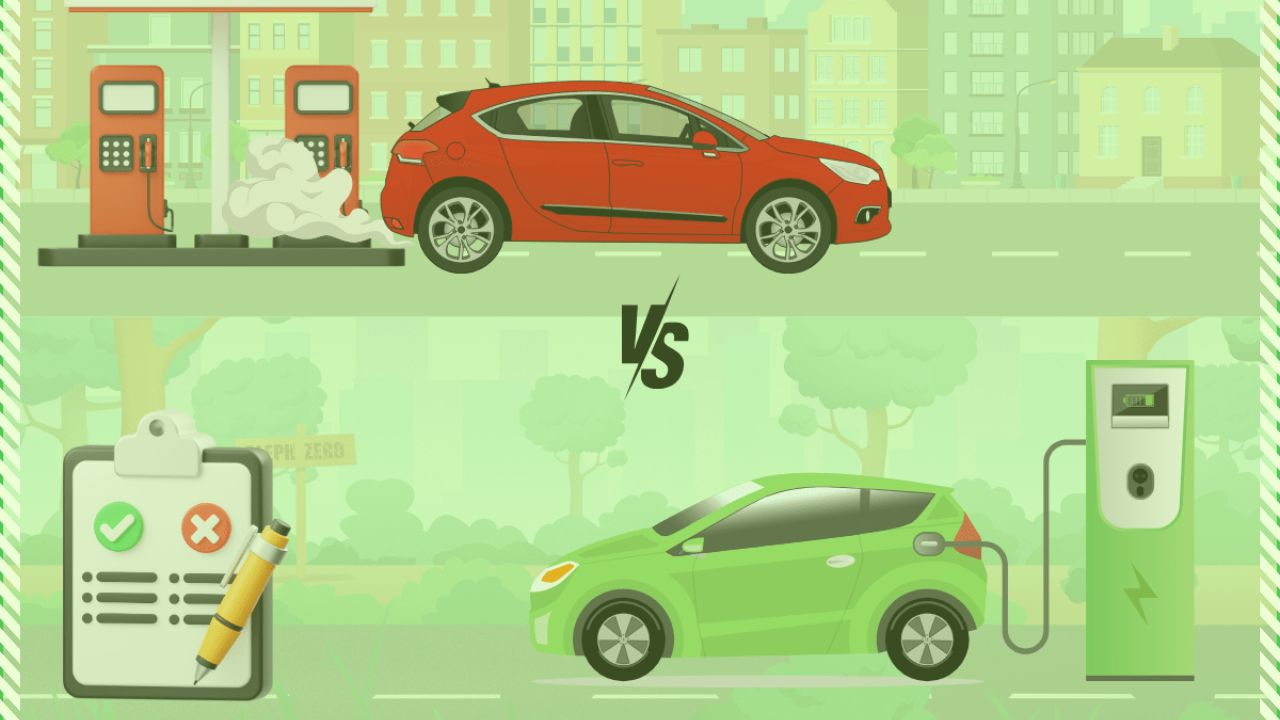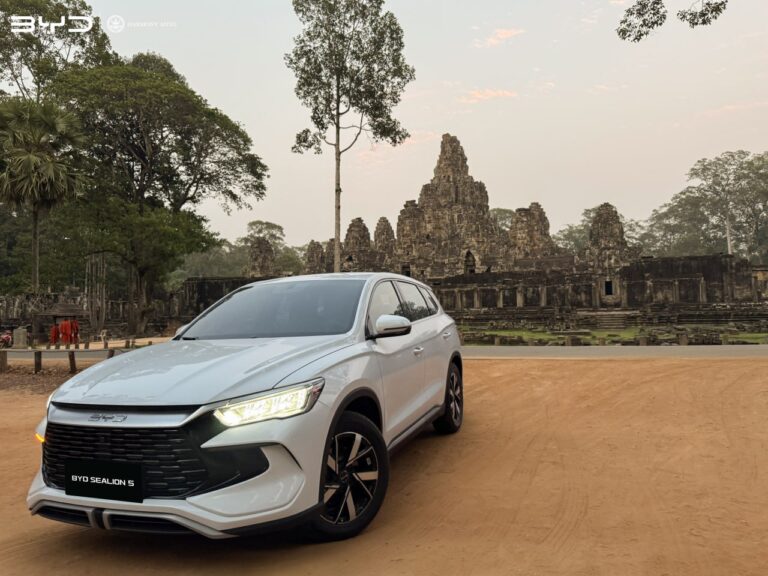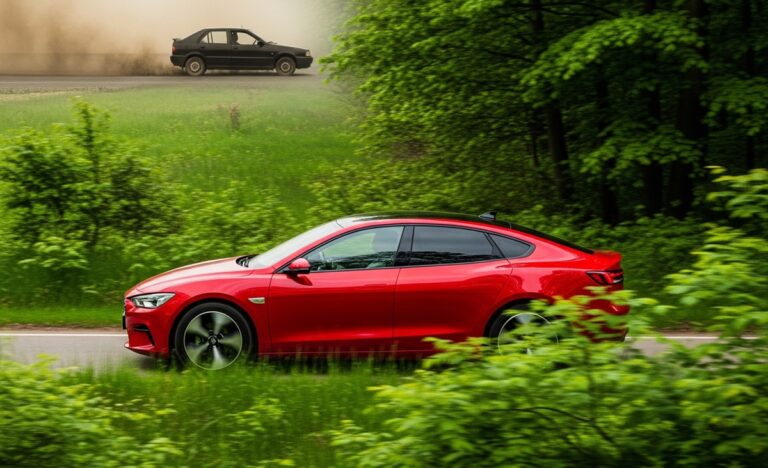Electric Cars vs. Gasoline Cars in Cambodia: Which One Saves You More Money?

As fuel prices fluctuate and environmental concerns grow, many Cambodian drivers are reconsidering their vehicle choices. Should you stick with a traditional gasoline-powered car or switch to an electric vehicle (EV)? While EVs have gained popularity worldwide, their adoption in Cambodia is still in its early stages. But do they really save you more money in the long run?
In this article, we will break down the total cost of ownership, covering purchase price, fuel and energy costs, maintenance, government incentives, and Cambodia’s current EV infrastructure. By the end, you will have a clearer picture of whether EVs or gasoline cars are the better financial choice for you.
1. Initial Purchase Price: EVs vs. Gasoline Cars
One of the biggest concerns when buying a car is its upfront cost. Currently, EVs are generally more expensive than gasoline cars due to the high cost of battery technology. However, in Cambodia, government policies are making EVs more affordable.
- Gasoline Cars: Typically, a brand-new gasoline car in Cambodia can range from $10,000 to $30,000, depending on the model and brand.
- Electric Vehicles: EV prices in Cambodia can range from $15,000 to $50,000. The cost is higher primarily due to battery components and import duties.
Government Incentives for EVs
To encourage EV adoption, the Cambodian government reduced special duties on electric cars from 30% to 10% in 2021. This tax reduction helps lower the overall purchase price of EVs compared to previous years (source).
Verdict: While EVs have a higher upfront cost, government incentives are helping to bridge the price gap.
2. Fuel Costs vs. Charging Costs
Fuel and charging costs are where EVs start to show significant savings.
- Gasoline Costs: In Cambodia, fuel prices fluctuate but average around $1.30 per liter. A car that consumes 8 liters per 100 km would cost approximately $10.40 to drive that distance.
- Electricity Costs: Charging an EV for 100 km costs around $4, depending on electricity rates (source).
Annual Savings on Fuel
- If you drive 15,000 km per year:
- Gasoline Car: $1,560 per year
- Electric Car: $600 per year
- Total savings per year with an EV: $960
Verdict: EVs offer substantial fuel cost savings over time.
3. Maintenance and Repair Costs
Electric vehicles generally require less maintenance than gasoline cars due to their simpler mechanical structure.
- Gasoline Cars: Require regular oil changes, engine servicing, transmission repairs, and exhaust system maintenance. The estimated annual maintenance cost can range from $500 to $1,200.
- Electric Cars: Have fewer moving parts, meaning lower maintenance costs. EV owners mostly need to replace tires, brakes, and eventually the battery (after 8-10 years). Annual maintenance costs range from $200 to $500.
Long-Term Maintenance Savings
EVs require about 30-40% less maintenance cost than gasoline cars (source).
Verdict: Over five years, an EV owner could save up to $5,000 in maintenance costs compared to a gasoline car owner.
4. EV Infrastructure in Cambodia: Is It Ready?
A major concern for EV buyers is the availability of charging stations.
- Gasoline Cars: Cambodia has an extensive network of gas stations, making refueling convenient.
- EV Charging Infrastructure: As of August 2024, Cambodia has 21 EV charging stations, mainly located in Phnom Penh and major highways (source).
Home Charging as a Solution
Many EV owners install home chargers, reducing reliance on public charging stations. Home charging is convenient but may require additional installation costs.
Verdict: While Cambodia’s charging infrastructure is improving, gasoline cars remain more convenient for long-distance travel.
5. Resale Value & Long-Term Considerations
Resale value plays a significant role in total cost savings.
- Gasoline Cars: Typically depreciate by 40-50% in five years due to fuel price fluctuations and engine wear.
- Electric Cars: EV depreciation varies. While battery replacement is a concern, improvements in battery technology are helping EVs maintain better resale value over time.
Future Market Trends
As EV adoption grows and more charging stations are built, resale values for EVs in Cambodia are expected to improve.
Verdict: EVs are a long-term investment that will likely become more financially viable as technology advances.
READ MORE: The Future of Electric Vehicles in Cambodia: Is the Country Ready?
Conclusion: Which One Saves More Money?
So, do electric cars save you more money in Cambodia? Let’s recap:
- Upfront Cost: Gasoline cars are initially cheaper, but government incentives are lowering EV prices.
- Fuel/Charging Costs: EVs save approximately $960 per year compared to gasoline cars.
- Maintenance Costs: EVs require 30-40% less maintenance, saving up to $5,000 over five years.
- Infrastructure: Cambodia’s EV charging network is growing, but gasoline remains more convenient.
- Resale Value: EVs are becoming more valuable as battery technology improves.
Final Verdict
For drivers looking at long-term savings, EVs are the clear winner. Despite a higher upfront cost, they offer significant savings on fuel and maintenance over time. As Cambodia continues to develop its EV infrastructure, owning an electric car will become even more practical.
If you are considering buying a new car, it may be worth exploring available EV incentives, home charging options, and total cost savings before making your final decision.
What do you think? Would you consider switching to an EV in Cambodia? Share your thoughts in the comments!



